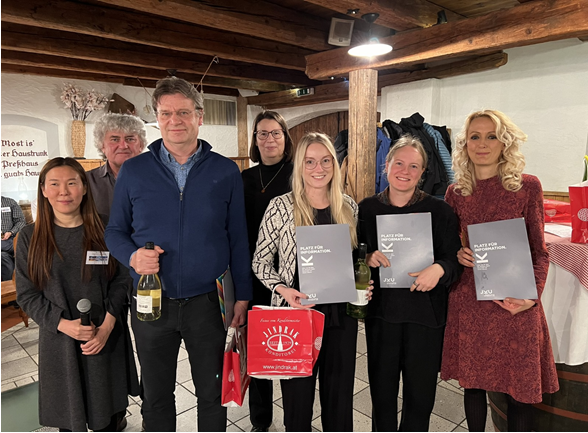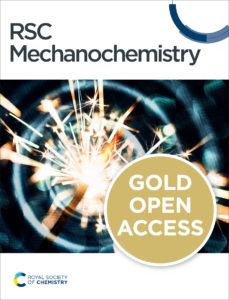
The XXIII Annual Linz Winter Workshop took place from 2 – 5 February 2024 and RSC Mechanochemistry was delighted to sponsor a prize for the best poster presentation.
The workshop focused on biological single-molecule research, nano-science, nano-medicine, cell-science and bio-nanotechnology and include force and optical microscopy/spectroscopy techniques. The workshop also featured special sessions on nano-medicine and high-speed atomic force microscopy..
Julia Benthin, a researcher at the Leibniz Institute for Food Systems Biology at the Technical University of Munich, Germany, presented her poster titled Maximising flavor: Leveraging nano-biophysical methods in food perception and formulation research.
The poster showcased Julia’s research on nano-biophysical methods, especially bio atomic force microscopy (AFM), for studying flavor perception in vitro using model systems as the single molecule/cell level. This included work on the use of AFM as an alternative high-throughput approach to investigate interactions between taste receptors and food-derived antagonists in (cell-free) model systems and AFM-based nanomechanical probing studies to decipher oral texture perception.
There were also three runner-up prizes:
Sarah Steiner (Institute of Biophysics, Johannes Kepler University, Austria) won the second place prize.
Melanie Köhler (Leibniz Institute for Food Systems Biology at the Technical University of Munich, Germany) and Ronnie Willaert (Research Group Structural Biology, Free University Brussels, Belgium) both won third place prizes.
Congratulations to all prize winners!

From left to right: Yoojin Oh (workshop organiser), Peter Hin (workshop organiser), Ronnie Willaert (third prize), Kerstin Blank (RSC Mechanochemistry Editorial Board member), Julia Benthin (first prize), Sarah Steiner (second prize), Melanie Köhler (third prize)
 |
RSC Mechanochemistry offers you an inclusive and dedicated home for the ideas, scientific language and approaches that cut across the many disciplines mechanochemistry touches. Here we are seeking to build knowledge, as well as foster innovation and discovery at this forefront of chemistry. Whether you are seeking to understand the fundamentals of mechanochemistry, or you are excited by its applications and potential, this journal is for you.
|

